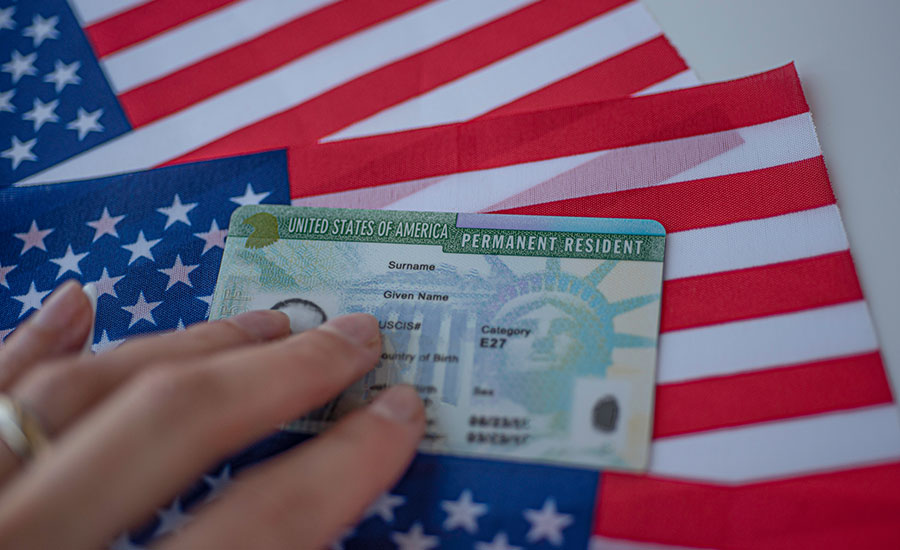

On January 29, 2025, President Trump signed the Laken Riley Act into law, enacting one of the most aggressive federal mandates for immigration enforcement in recent history. Passed in response to a high-profile homicide involving an undocumented immigrant, the legislation expands mandatory detention, increases federal-state enforcement pressure, and limits the discretion of immigration judges and ICE officers alike.
As of July 2025, the law is actively reshaping how the Department of Homeland Security handles individuals with certain criminal histories, even if those crimes occurred years ago or were resolved without jail time.
This article explains what the Laken Riley Act does, who is at risk, and how Spar & Bernstein is helping clients fight back.
Key Provisions of the Laken Riley Act
The law introduces several sweeping changes:
- Mandatory Detention for Criminal Charges
Any undocumented immigrant who has been convicted of a broad range of crimes—including theft, burglary, assault, drug possession, and other non-violent offenses—is now subject to mandatory detention by ICE upon arrest or identification.
- No Release Without Removal Proceedings
DHS officers are prohibited from releasing these individuals unless they are in active removal proceedings, significantly reducing opportunities for bond or discretionary parole.
- State Lawsuits Against the Federal Government
The law authorizes state governments to sue DHS if they believe their jurisdiction has suffered “harm” from the release of a noncitizen with a criminal conviction. This provision is unprecedented and paves the way for politically motivated litigation that could further restrict immigration policy nationwide.
- Public Reporting Requirements
DHS must now publish a list of noncitizens arrested, released, or removed quarterly. This has already led to media misuse of immigration data and increased public fear and misinformation.
Who Is Affected?
The law is retroactive in effect. This means individuals with past criminal convictions—regardless of time served, immigration history, or rehabilitation—can now face sudden detention and removal. For example:
- An undocumented person with a shoplifting conviction from 2018 could now be detained without bond.
- A long-time green card holder convicted of simple drug possession may face deportation if ICE asserts that the offense qualifies as a removable crime.
- An immigrant who was previously released on ICE supervision may be re-detained under the law’s revised detention mandate.
Families are already reporting early-morning raids and surprise arrests stemming from old criminal records. In some cases, individuals who had previously won cancellation of removal or asylum are being re-arrested based on reopened enforcement files.
Legal and Constitutional Concerns
The Laken Riley Act raises numerous constitutional and statutory issues, including:
- Due process violations for individuals detained without the opportunity to seek bond or raise humanitarian defenses
- Separation of powers concerns, where states can now sue federal agencies over enforcement decisions
- Equal protection implications in how data is published and politicized
Federal lawsuits are pending in multiple jurisdictions, with civil rights groups arguing that the law exceeds Congress’s enforcement powers and violates the rights of immigrants to individualized review.
How Spar & Bernstein Is Responding
We are already defending clients detained under the Laken Riley Act and preparing strategic litigation to limit its reach. Our legal services include:
- Challenging unlawful detention through habeas corpus petitions and bond motions
- Filing suppression motions when ICE arrests violate constitutional rights
- Reopening old criminal convictions that may now trigger removal under the new law
- Seeking waivers and cancellation of removal for long-time residents or family-based immigrants
- Advising state and local organizations on legal tools to resist federal-state enforcement entanglements
We also support community coalitions working to protect immigrants from unjust arrest and deportation under this new regime.
What Immigrants and Advocates Should Do Now
- Get a criminal record review. If you or a loved one has any past criminal charges or convictions, consult an immigration attorney immediately.
- Update legal documents and immigration filings. Incomplete or outdated records can increase detention risk.
- Prepare a family protection plan. In the event of a sudden ICE arrest, know who to contact, where your documents are, and what your rights are.
- Track court decisions. Ongoing legal challenges may result in injunctions or relief that could pause or reverse certain provisions.
Conclusion
The Laken Riley Act is not simply about public safety; it is part of a broader campaign to criminalize immigration and remove discretion from enforcement agencies and immigration judges. By turning old convictions into new detention triggers and inviting states to interfere with federal policy, the law sets a dangerous precedent for due process and immigrant rights.
Spar & Bernstein is committed to defending every individual and family affected by this law. If you or someone you know is at risk under the Laken Riley Act, contact us right away. We are ready to act swiftly to protect your rights, your status, and your future.




